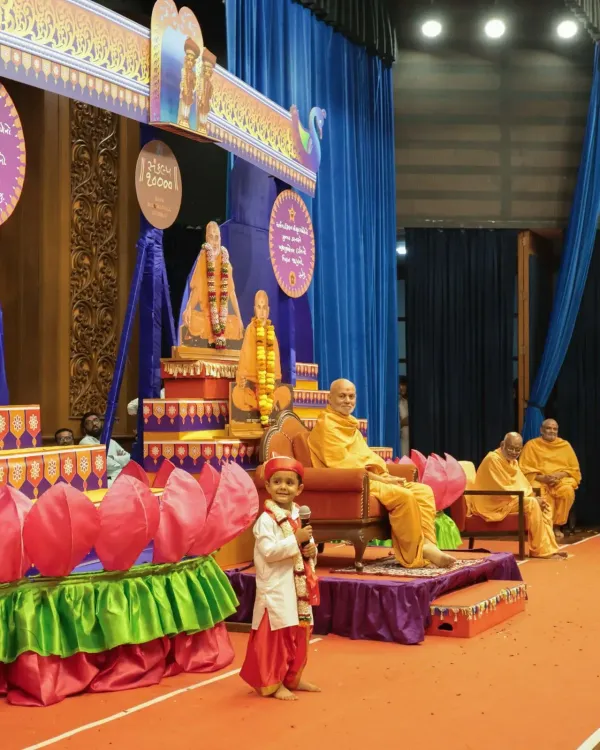How is BAPS Transforming Young Lives through Sanskrit Learning?

Synopsis
Key Takeaways
- Groundbreaking initiative for Sanskrit learning launched by BAPS.
- Over 37,000 children registered, with a goal of 10,000 learning by Diwali.
- Focus on 315 Sanskrit verses from the 'Satsang Diksha' granth.
- Encouraging discipline, devotion, and memory among young learners.
- A cultural revolution aimed at preserving our heritage.
New Delhi, July 29 (NationPress) In a landscape saturated with distractions and entertainment, instilling cultural values in children has become a pressing need.
The BAPS Swaminarayan Sanstha has initiated a groundbreaking program aimed at the comprehensive development of young minds.
With the divine guidance of Mahant Swami Maharaj, BAPS has been unwavering in its mission to foster moral, spiritual, and intellectual growth among children and adults alike.
In a significant move, BAPS has rolled out a large-scale Sanskrit learning initiative designed to safeguard our timeless values and language. This initiative has garnered an incredible response globally, with more than 37,000 children signing up, aiming to have 10,000 children start learning Sanskrit by this upcoming Diwali.
In Mumbai specifically, 1,000 children have already commenced their journey in Sanskrit studies, with 400 completing their courses, while the rest are on track to finish by the next Diwali.
Children aged between three and 14 years are actively engaged in memorizing and reciting various Sanskrit verses.
This Sanskrit Shloka Mukhapath Abhiyan centers around memorizing 315 verses from the 'Satsang Diksha' granth, a revered text authored by Mahant Swami Maharaj himself.
In this fast-paced, materialistic age, it is truly heartening to see thousands of children embracing Sanskrit, our ancient and sacred language, as a means to reconnect with their cultural heritage.
This extraordinary movement transcends mere language; it is about nurturing discipline, devotion, memory, and inner strength.
Child psychiatrist Shreyasetu Swami remarked that such accomplishments stem from the collective efforts of hundreds of saints, volunteers, and meticulously designed educational programs initiated by BAPS.
"This initiative is not just an educational endeavor; it represents a cultural revolution. Through the adoption of Sanskrit, children are not only preserving a language but also developing character, memory, and focus," he added.










